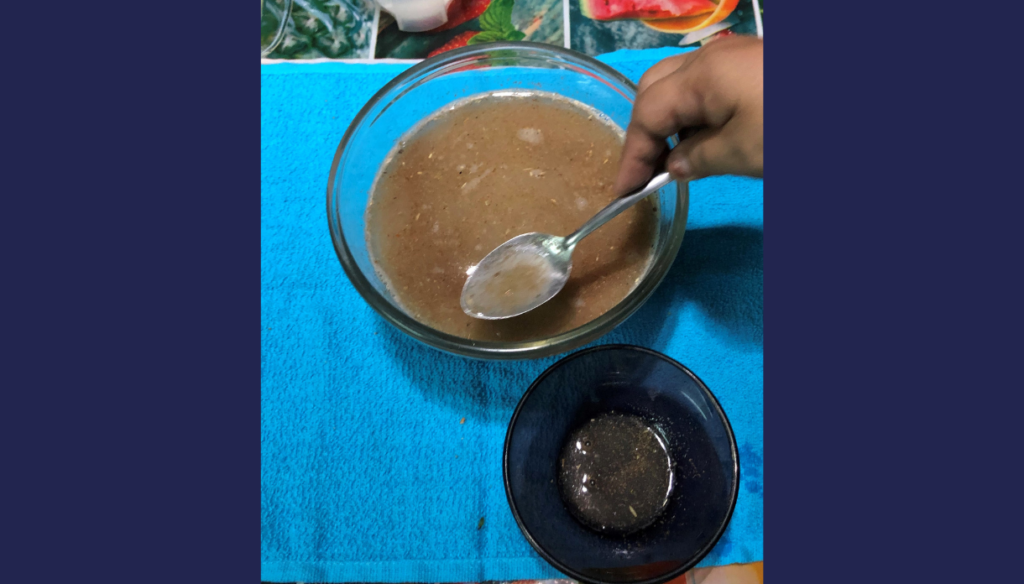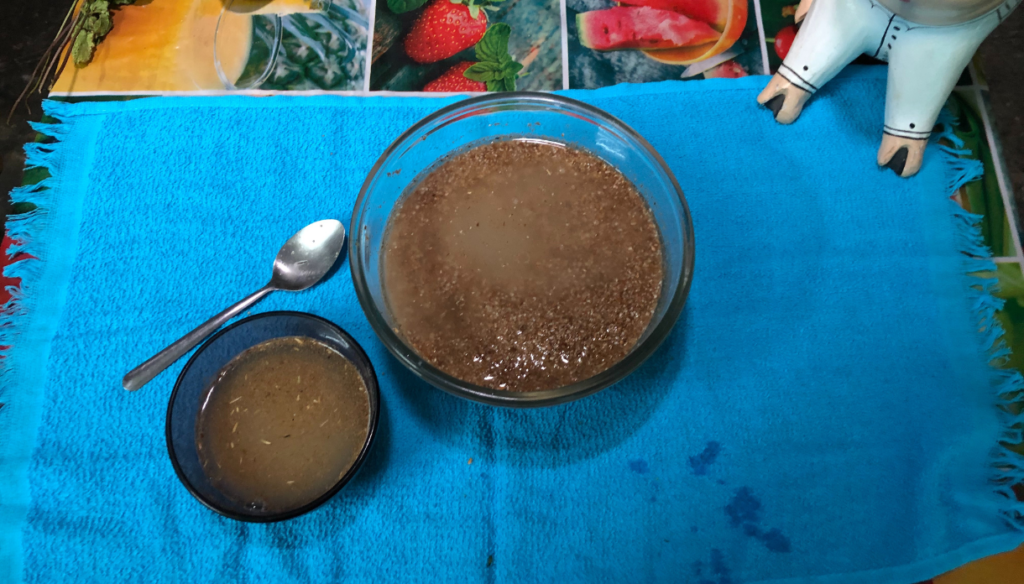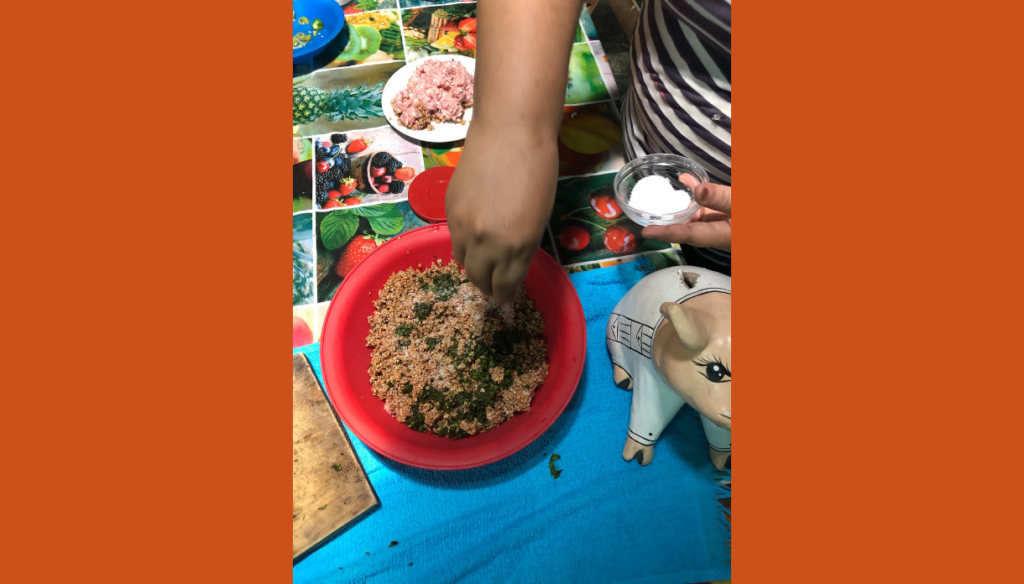Maestro Cesar’s recipe: Kibis | A Mexican dish from the Middle East to the Yucatan Peninsula
My mom told me that when they had traditional parties in the Yucatan Peninsula there always was one very interesting and delicious dish to enjoy between Mass, the jarana regional dances and the bullfights in the afternoons: The kibis. Kibis are like a kind of mini empanadas or fried meatballs made from flour and meat sometimes filled with red onion and chopped cabbage and served on a piece of tortilla paper. I remember when I was a kid, that they had an exterior crunch but were soft inside and were filled with ground beef and queso de bola, or sharp edam cheese. The vendors were outside selling them out of a clear, glass box and I remember them getting out of the public vans with their boxes of kibis all the way from Merida. Today, you can buy kibis from street vendors, in a cantina as a snack with your beer, or if you’re at the beach in the state of Yucatan, you can find them from the same vendors selling them out of the classic glass box. But, what are kibis?
Kibis are an example of the mixing of different cultures in Mexico. Kibis are a very common food in the Yucatan Peninsula, and like other Mexican dishes, they're a multicultural fusion. Originally, kibis came with the arrival of the Lebanese immigrants during the 19th and 20th centuries and quickly had a special place in Yucatecan cuisine. It’s said that immigrants from the Mediterranean have also greatly influenced and become a part of Mexico’s gastronomy and culture such as the trompo or vertical spit for Mexico’s famous tacos al pastor. Before, the kipe or kibbeh in Arabic, were a gift that the Lebanese gave to the Yucatecans to help with their integration into Mexican society. Now these kibis are an essential treat and snack especially in bars and cantinas to enjoy with an ice-cold beer, or cerveza ‘bien muerta’.
The Yucatecan gastronomy is a clear example of the integration and multiculturalism of the region.
Now, for the recipe. I have to admit, I’m usually not a master in the kitchen especially when the kitchen isn’t mine, and that said, I will have the help of my mom who offered to help guide me during the process and supervise that everything is going as it should!
Kibis - The Recipe.
4 servings
Ingredients
½ kg of roughly ground or cracked wheat (bulgur)
¼ kg of ground pork* Salt and pepper for taste.
3 cups of water (approx)
A handful of good-quality, fresh spearmint
1 cup of vegetable oil
1 cup chopped red onion
Juice from1 sour orange or lime
1/2 chile habanero, diced without seeds
*If you don’t want to use meat, replace the ground pork with either 2 beaten eggs or ½ a chopped tomato and ½ a chopped onion
Extras for fillings, if desired:1 cup grated Edam cheese1 cup chopped onions1 cup favorite chopped vegetables
Instructions
Clean the wheat or bulgur in a bowl with the 3 cups of water. The water should completely cover the wheat. If necessary, add more water.
Use a spoon to remove any small pieces of wheat husk that float to the top
Leave the wheat to absorb the water for at least two hours (my mom recommends leaving the wheat all night to get the best consistency)
Clean and chop the peppermint leaves. Set aside.
In a small bowl, mix the chopped red onion, sour orange or lime juice and diced habanero. Set aside.
Once the wheat is ready, drain it in a strainer.
Rinse the wheat with more water as it’s in the strainer
Put the wheat into a large bowl
Add the chopped peppermint and mix with a spoon
Add salt and pepper to taste (we like at least 2 large pinches)
Add the ground pork and mix with a spoon
Once you have a good mixture, use your hands to form the kibis. They can be flat and round, oval, or like meat balls
If you wish to fill them with an extra ingredient like cheese or vegetables, make the patty flat, put in the extra in the middle and fold and close the patty over the filling
Heat the oil In a frying pan over medium heat for 2 minutes
Using a spatula, slowly place the kibis into the hot oil so the oil doesn’t splatter
Fry both sides until they turn a dark, golden brown
Let them sit to fry so they don’t fall apart
When they’re ready, let them drain in a metal strainer or on paper towels to absorb the oil
Finally, serve the kibis with the red onion mixture to give them a touch of the Yucatecan sour spice flavor!
And, my favorite is to have an ice-cold beer with them!
¡Buen provecho!
If you would like to read more about Mexican culture, history, cuisine and language, check out our blog page for our latest monthly articles. You can also sign up to our newsletter to receive these straight to your inbox along with the latest news about our non-profit school for local and Indigenous students in Felipe Carrillo Puerto.
The best way to experience the Mexican lifestyle is in person, with a Na’atik Immersion experience. Not only do you live with a local Mexican-Maya family, sharing home-cooked meals and free time, but also receive expert instruction in your chosen language at our school. Best of all, every immersion experience helps fund our subsidized and free local education program, helping local students to access opportunities and make their own futures.
















